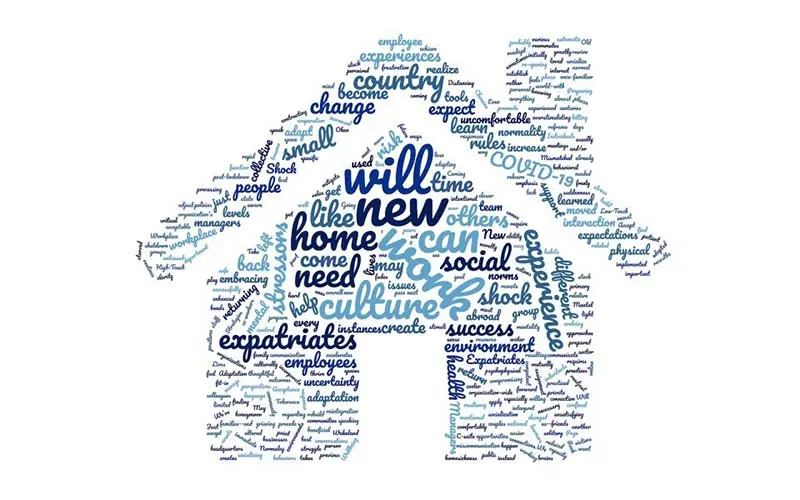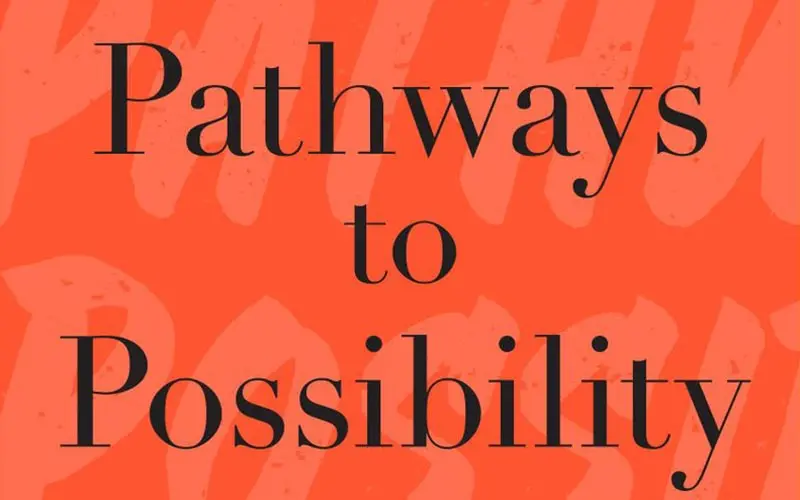As children we ask “why” instinctively, but as adults we tend to lose this gift. We become complacent as we accept the rules of the game given us by society and the rules we internalized for ourselves. We rely on and become addicted to games and systems that play to our strengths, and the systems that benefit us. In some instance, we do ask why but decide to justify, defend, or ignore systemic injustice.
Leadership in the era of a global pandemic and social injustice demands more than the normal fiscal and strategic competencies. Leaders must become disruptors in pioneering organizational change that propels social change, and at the same time meet financial goals, expand market share, and strengthen relationships with key stakeholders.
The deep-seated illnesses in our society of latent racism and inequality that have risen to the surface are also evident in our companies. Organizations need to start with a complete reexamination of cultural norms, and intentional management of the psychological contracts within the firm. Eradicating injustice begins with asking the right questions — of ourselves, of others, and of systems.
Today’s leaders — actually all of us — have the chance and the responsibility to peel back centuries of unchallenged assumptions that created unjust systems and broken psychological contracts.
The promises we keep reflect the people we are.
In the workplace, a psychological contract refers to an informal agreement that governs the expectation of transactional or relational exchanges among employers and employees.
These contracts take different forms in teams and subordinate relationships. For example, most people agree that taking credit for someone else’s work breaks a psychological contract between employees. Likewise, displaying unfair bias in compensation or opportunities reflects a broken psychological contract in an employer/employee relationship. If one party perceives a lack of fairness, that inequity represents a breach in the psychological contract between the parties.
During the pandemic, workers, often from underrepresented minorities, who experience food insecurity and inadequate healthcare, served our country. Many became the sacrificial essential front-line workers in meat packing plants, municipal services, and grocery stores. As we reflect as a society and corporate citizens, do we have a duty to ensure safety and fair compensation for those workers? Or do we convince ourselves that conditions and compensation are commensurate to the value of their efforts and skills or risk of their profession?
The pandemic and the social unrest leave us with the need to confront systemic injustice in our workplaces, broken psychological contracts, and how we might have failed to live up to our ideals as leaders and as a society-at-large. The brewing crisis of leadership will depend on the level of courage leaders ensue to confront and speak up against injustices and other social ills.
Being an ethical leader is not enough.
Ethical leaders are not all moral leaders. They adhere to certain rules of conduct based on the situation and context. Today, people wonder why some police officers fail to receive a conviction in wrongful death cases. Ethically, if the police officer followed the code of conduct and the law, then the verdict goes in favor of the police even if the act seems immoral. Should society confront laws that perpetuate injustice and immorality? Rosa Parks’ decision to sit at the front of the bus, broke the law, but the law was immoral. As a result of challenging unjust laws, a path for justice and fairness became clear.
Moral leadership challenges unjust laws and practices — even ethical ones. For hundreds of years society deemed slavery as an ethical form of commerce, and some leaders used biblical text to justify its morality. However, if we dug deeper then, and probe more now, we can widen our lenses and begin to heal society once and for all of the illness of inequity and injustice. The Book of Exodus accounts for many plagues before the liberation of the slaves from Pharaoh’s rule. We must recognize that change includes setbacks and applied pressure to break through once considered impenetrable belief systems. Likewise, strong moral leadership can bring about organizational justice in our workplaces today. A moral leader follows deeply held values of right and wrong behavior.
The questions we ask ourselves reflect the people we aim to become.
American psychologist Lawrence Kohlberg’s theory of moral development spans five stages from childhood to adulthood. In the earlier stages, leaders focus on their own self-interest, then as moral character develops we care for others, but moral development peaks when a leader pursues justice for all mankind. A developed moral leader continuously seeks to expand his knowledge of justice, possesses a social conscience, and believes in the inalienable rights of a human’s life.
A new type of leader must emerge to tackle the systemic challenges caused by the pandemic and racial injustice: a leader with the moral character to approach complex social, political, and economic problems in an unbiased and just manner. A leader who exhibits high levels of emotional intelligence and moral leadership and seeks to understand and amend broken psychological contracts with key stakeholders. These leaders must start by asking “why.” This process should be repeated, in the tradition of Kaizen, the total quality approach and business philosophy of continuous improvement that enables engineers and companies to identify root causes.
As children we ask “why” instinctively, but as adults we tend to lose this precious gift. We become complacent as we accept the rules of the game given us by society and the rules we internalized for ourselves. We rely on and become addicted to games and systems that play to our strengths, and the systems that benefit us. In some instance, we do ask why but decide to justify, defend, or ignore systemic injustice.
Being a moral leader in 2020 requires pairing this childlike quality of asking “why” with the analytical rigor and values to guide systematic changes. To probe and change the status quo to create a new equilibrium, a moral leader goes beyond asking “why” to asking “how come?” or “at whose expense?” We start by becoming good neighbors, good peers in the workplace, and good citizens willing to examine the status quo in an effort to serve humanity justly and fairly. Moral leaders discern good from bad behavior, establish just rules, and promote fair games. They also need to be ethical leaders.
Only a moral leader can create a culture of organizational justice.
Organizational justice refers to the extent employees perceive they are being treated fairly and that rewards are being equitably distributed using a just, informative, and respectful process. Leaders must exhibit the type of moral leadership that pursues organizational justice through policies that disrupt entrenched political structures of power and influence to promote equity, inclusion, and belonging for all stakeholders. Proponents of the framework identify four types of organizational justice:
- distributive justice means a fair allocation of rewards and resources;
- procedural justice refers to an impartial process or system;
- interpersonal justice means establishing relationships that demonstrate equal respect and consideration in the decision-making process; and,
- informational justice refers to fair and equal access to information.
We found these four categories helpful to our own reflection and action in our respective organizations. We must start with a willingness to listen and heed the counsel of all employees, not just select groups. This is not just necessary for employees to perceive fairness in policies and applications — but also necessary for transformation and evolution. Because a perceived violation of the psychological contract leads to lower levels of employee motivation, commitment, and productivity that results in negative financial performance for an organization.
So, let’s focus on the HR side for the purpose of this reflection. Many of us at all organizational levels are starting to ask these questions. But a moral leader needs to push the enquiry further by taking the necessary actions to ensure equitable advancements for all employees irrespective of race and gender. These questions could be:
- Can we really explain and justify why we offer different pay rates to individuals in the same exact position?
- Why do we use a given process to determine promotions, personal development tracks, and in assigning projects? How do we select the candidates in a fair and transparent process?
- Why do we perceive, recognize, and manage minority employees differently in assessing their aptitude to perform at the highest levels in the organization? Why?
- Why do we use different language patterns to communicate and share information about minority groups?
To that end, organizations need new metrics or must enforce existing metrics to detect and assess the efficacy of organizational justice. For example, if a metric assesses cultural fit, then assign its proper weight, and don’t disqualify a candidate by falsely assigning a higher value to cultural fit to justify a bias or deny access. Forbid unverified coded language that perpetuates bias. Organizations must hold leaders accountable and offer rewards for fair and just development of human capital comparable to incentives given for meeting financial goals, stock price, and market share. The incentive structure must serve as an instrument to mitigate injustice and inequity and motivate real change to our organization’s culture.
A next step in this reflection is to call for significant adjustments that can drive deeper change:
- How would the board conversation change if we added a Board of Director Member Seat specifically focused on Moral Leadership and Organizational Justice? This individual should work with HR leaders and Chief Diversity Officers to measure both organizational justice factors and economic productivity as part of the reward structure.
- What would it take to commit to Pay Equity, bridging the wealth gap, and programs such as Financial Literacy in our organizations?
- Why have we not committed to equal representation? If the plant workers are ethnic minorities, why not promote an ethnic minority to leadership? Eliminate recruiting and advancement bias by instituting transparent decision-making rubrics and independent career coach/consultants to identify the right candidate.
- If we bemoan the pipeline issue, why have we not investigated programs to provide scholarships, internships, and grant opportunities to high schools and colleges to promote access to the talent we seek to profess to want?
- Why do we continue to focus on attracting talent versus retaining it? Why have we not innovated in recruiting and onboarding? What different systems and approaches could we use to source for difference and retain for complementarity? Finally, how do we weigh integration with equality?
Fulfilling psychological contracts for a diverse workforce is the leadership challenge of our times.
We must stop turning a blind eye and risk trading in some of our individual privileges for the greater good. We must believe that equity and inclusion represent a win/win proposition. We must imagine bigger vehicles to transport all our dreams and destinies rather than limiting ourselves by closing the door to our collective human potential.
The opportunity to establish a culture of fairness and equity promises a high return on investment for a better work environment, higher levels of productivity, and higher levels of employee commitment.
Become a moral leader and rise to the challenges of this new decade to fulfill the psychological contract to achieve a just society.
Start with a question, and then don’t stop until we see the change we need to make our world fair and equitable for all humankind.
Authors:
Deloris Thomas, Ph.D., President of the Joseph Business School and global leadership strategist. She has been recognized as a Notable Woman in Education by Crain’s Chicago. Dr. Thomas holds an MBA from Harvard Business School and Ph.D. from Regent University. As a woman of faith, she merges her corporate and non-profit experience to challenge traditional leadership models and equip entrepreneurs in over 20 countries to start and scale businesses to eradicate poverty and grow generational wealth.
Carin-Isabel Knoop leads the Harvard Business School’s research and case writing group and has helped HBS faculty members write more than 200 case studies on organizations and managers around the world. At night she thinks about how to make their challenging lives better. This led to research and publications in the area of mental health in the workplace and an interest in human sustainability. She is a pragmatic idealist and fanatic postcard writer.
Readings:
Konopaske, R., Ivancevich, J. M., & Matteson, M. T. (2018). Motivation. In Organizational behavior and management (pp. 136–138). New York, NY: McGraw-Hill Education.
Yukl, G. A. (2013). Ethical, Servant, Spiritual, and Authentic Leadership. In Leadership in organizations (Eighth ed., p. 345). Harlow: Pearson.




